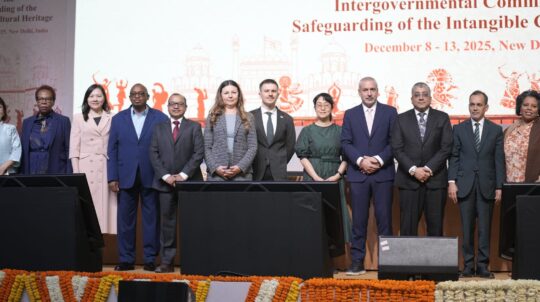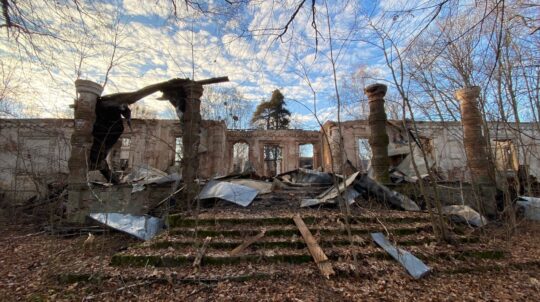During the second module of the first international conference on Ukrainian culture, “Cooperation for Resilience”, focusing on “National and International Sanctions: Fighting the Illicit Trafficking of Cultural Property”, participants emphasized the urgent need for global cooperation to halt the looting and illicit trafficking of Ukraine’s cultural heritage and to ensure accountability for war crimes against its property.
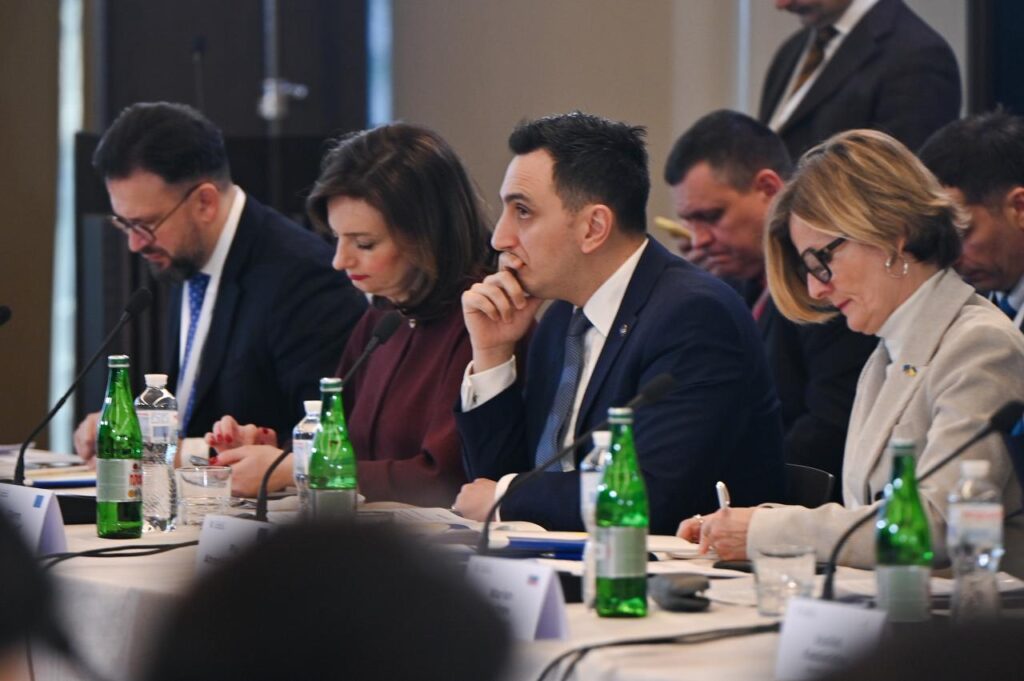
Andrii Nadzhos, Deputy Minister of Culture and Strategic Communications of Ukraine thanked each participating state for their vital support and emphasized the need for the Parliamentary Assembly of the Council of Europe to adopt a resolution on the destruction of cultural identity during both war and peacetime.
“The policy of genocide must be stopped, and Ukraine has been fighting this on the battlefield for years. We appreciate all international institutions, organizations, the EU, UNESCO, and the Council of Europe for their involvement in this struggle. The resolution states that the deliberate destruction of cultural heritage and identity constitutes war crimes and crimes against humanity. Just a week ago, the European Parliament adopted a resolution addressing the disinformation and historical distortions that russia uses to justify its war. We value everyone’s actions and contributions in this fight”, said Andrii Nadzhos.
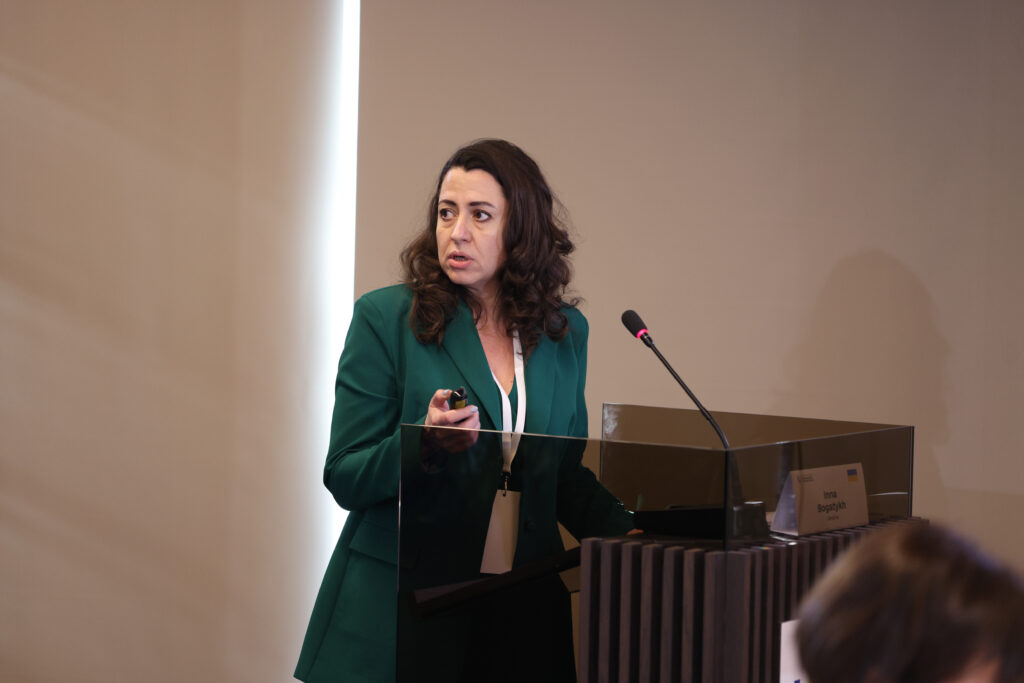
Inna Bohatykh, Deputy Minister of Justice of Ukraine, presented statistics on cultural heritage objects looted by russia, noting that approximately 7 million cultural artifacts have been lost, with around 1.5 million still located in occupied territories. “Ukraine has initiated sanctions against individuals and entities involved in looting and granting permits for illegal archaeological excavations in these areas. However, beyond sanctions, each case of illegal handling of Ukraine’s cultural property must be thoroughly investigated, and all responsible parties should face criminal liability”.
“russia is committing daily acts of genocide against Ukraine and its people. Its goals have not changed over the years. They remain the same as in 2014 when russian aggression began and in 2022 – to destroy Ukraine as a nation, a sovereign and independent European state, and to eradicate Ukrainian culture and identity. This is undeniably an attack on democracy. Ukraine’s victory is not just about winning. It is a victory for Europe and the entire democratic world against dictatorship and authoritarian regimes”, emphasized Mariana Betsa, Deputy Minister of Foreign Affairs of Ukraine.
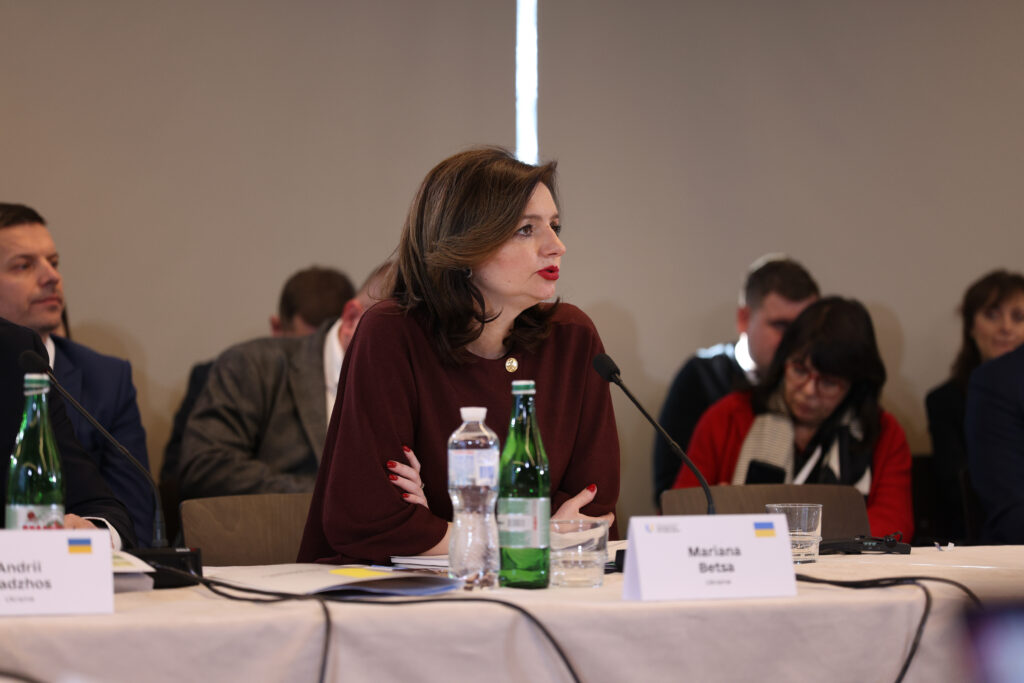
She also noted that significant progress has been made over the past four years to reduce russia’s influence internationally. In 2022, the aggressor country faced defeats in elections to nine UNESCO bodies and programs. Important strides have also been made in documenting russia’s crimes against Ukrainian culture and strengthening sanctions against its organizations.
Furthermore, Ukraine has taken key steps to preserve its cultural heritage. In December 2024, during the 19th session of the Committee for the Protection of Cultural Property in the Event of Armed Conflict, Ukraine initiated a decision regarding the consequences of damage to cultural property under enhanced UNESCO protection. Additionally, 27 cultural heritage sites in Ukraine were added to the list of objects under enhanced protection.
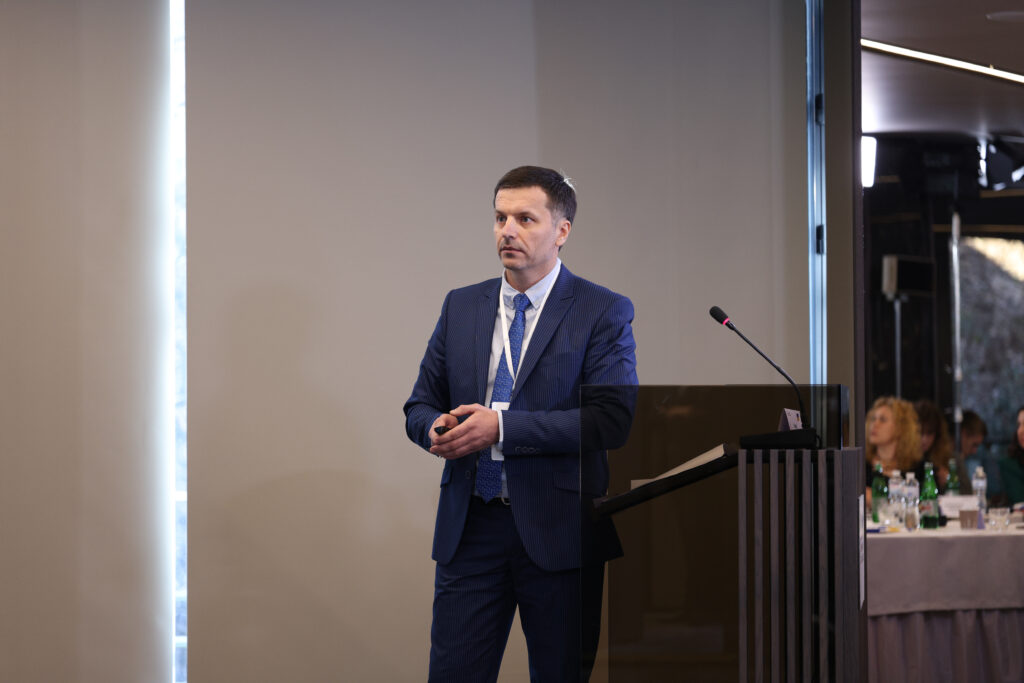
Vasyl Yatsyn, a representative of the Office of the Prosecutor General of Ukraine, and Oleksii Shevchuk from the National Academy of the Security Service of Ukraine outlined the crimes russia has committed against cultural heritage, impacting numerous museums, libraries, galleries, artistic educational institutions, and churches.
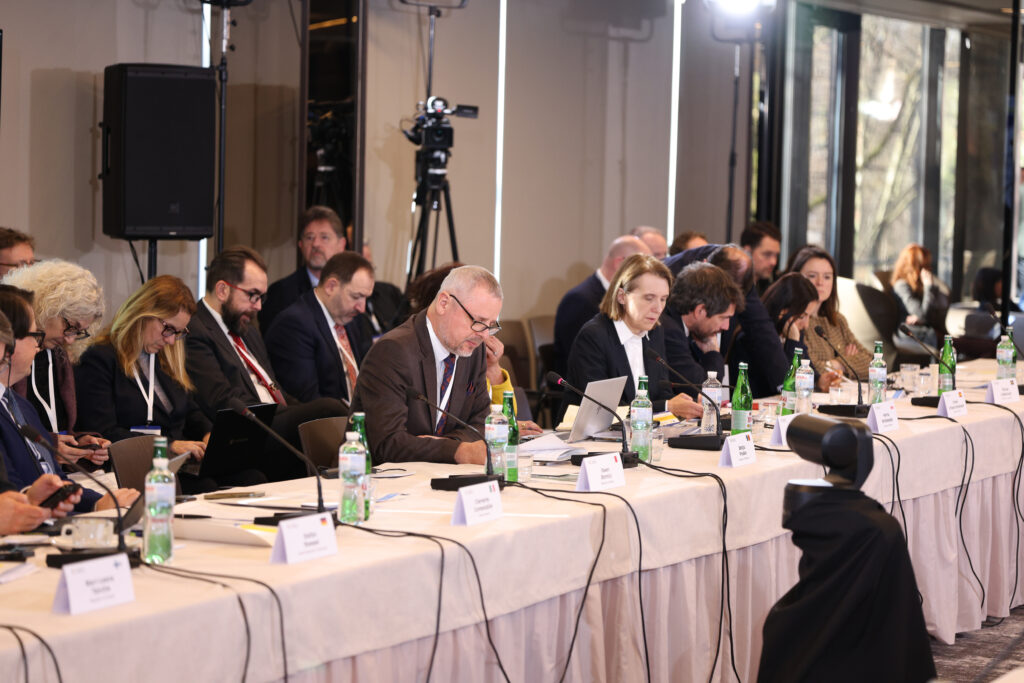
“Every saved church, every preserved work of art, and every protected historical document represents a victory over destruction and forgetfulness. In this fight, we share a collective responsibility to establish effective protection mechanisms, foster international cooperation, and support those risking their lives to safeguardUkraine’s cultural heritage. We will continue to strengthen these efforts through cultural partnerships, joint exhibitions, and conservation and restoration programs”, said Serhiu Prodan, the Minister of Culture of the Republic of Moldova.
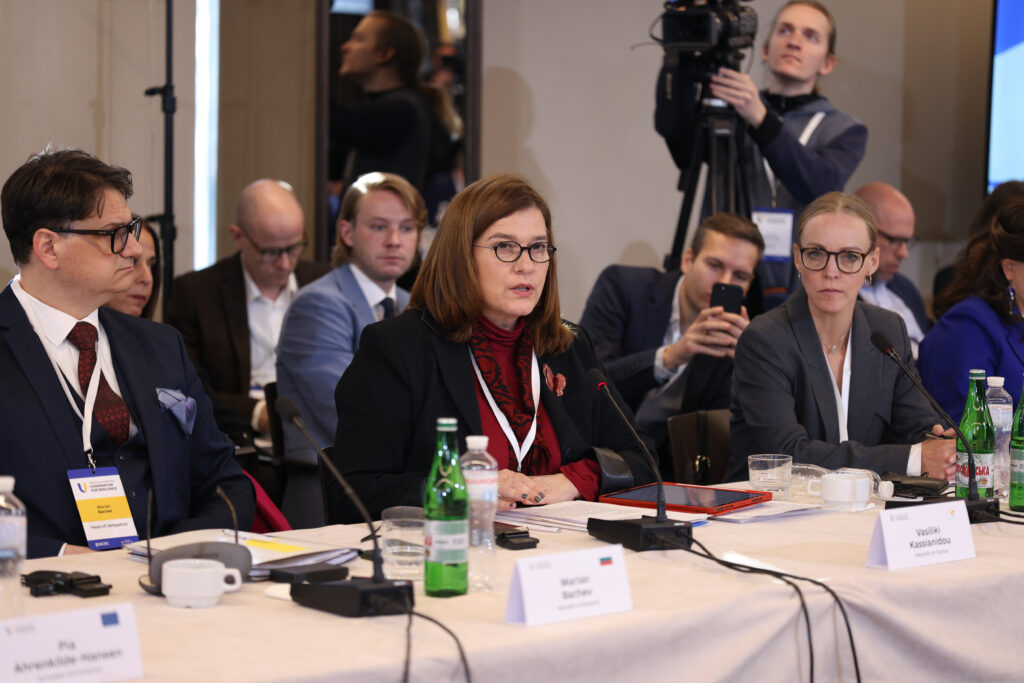
“We urge everyone to sign the Nicosia Convention, the only international agreement addressing criminal measures and sanctions against illegal activities such as the destruction and trafficking of cultural heritage. I will sign the proposed Declaration on behalf of the Republic of Cyprus today. I invite Ukrainian experts to come to Cyprus and work with our teams to combat this heinous phenomenon. We will stand with Ukraine for as long as necessary”, emphasized Vasiliki Kassianidou, Deputy Minister of Culture of the Republic of Cyprus.
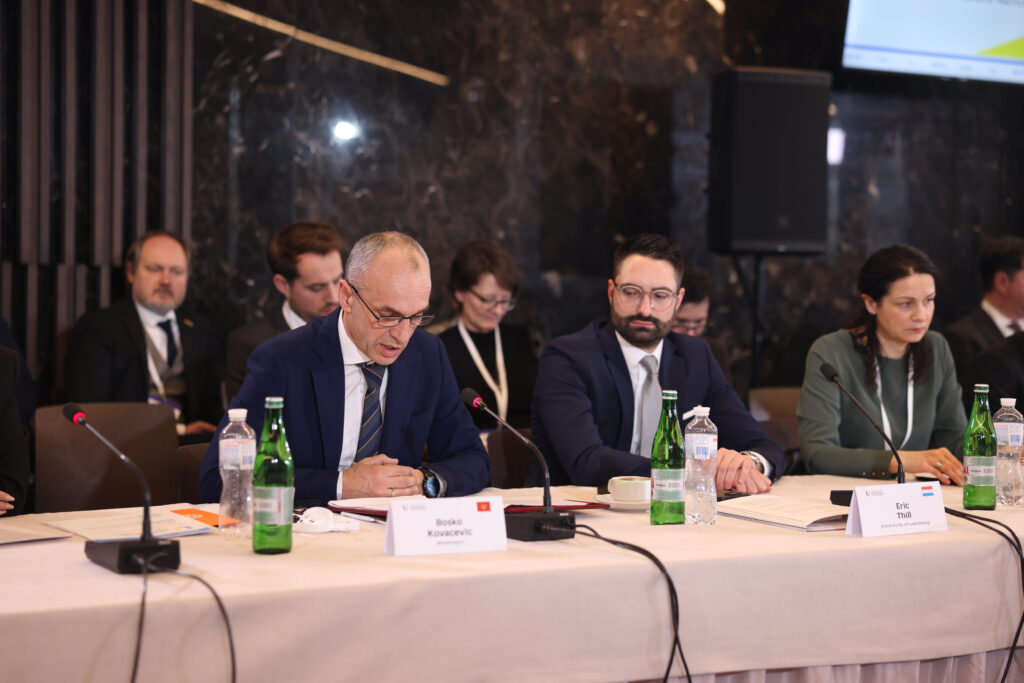
At the end of the second module, Boško Kovačević, State Secretary of the Ministry of Culture and Media of Montenegro, underscored the importance of supporting Ukraine in preserving its independence, integrity, and sovereignty: “I support Ukrainians’ aspirations to become full EU members and congratulate you on the start of the negotiation process. I am confident we will soon witness this event, which will improve living conditions for our citizens and promote peace and tolerance”.
